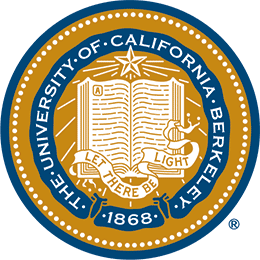- BOINC lets you help cutting-edge science research using your computer. The BOINC app, running on your computer, downloads scientific computing jobs and runs them invisibly in the background. It's easy and safe.
- About 30 science projects use BOINC. They investigate diseases, study climate change, discover pulsars, and do many other types of scientific research.
- The BOINC and Science United projects are located at the University of California, Berkeley and are supported by the National Science Foundation.


News from BOINC Projects
[YAFU] Aliquot sequence 3491852 and 3041310 have terminated!!!
View article · Sun, 12 Oct 2025 13:09:10 +0000
[YAFU] Aliquot sequence 2420250 has terminated!!!
Aliquot sequence 2420250 has terminated!!!
View article · Wed, 8 Oct 2025 13:42:27 +0000
[LODA] 140,000 Programs Milestone Reached
We are excited to announce that the LODA BOINC project has reached an significant milestone: over 140,000 programs discovered! This marks a major advancement in our mission to automatically generate programs for integer sequences from the OEIS. Thanks to your support, we now have program coverage for entire classes of sequences that previously had no program coverage at all.
We have launched a public API that enables programmatic access to the LODA database, allowing developers and researchers to query, analyze, and work with LODA programs at scale. Our new Model Context Protocol (MCP) server integration now allows AI chatbots to interact directly with LODA. Users can analyze integer sequences, execute LODA programs, and even submit new programs using conversational AI interfaces.
The Top Users page has been improved to better highlight your contributions, now featuring an additional column showing the number of programs mined by each user.
Thank you for your continued support, and for contributing your computing power and expertise to the project!
View article · Fri, 3 Oct 2025 14:22:15 +0000
... more
Computing power · Certificate · Poll · Teams
Scientists:
- Create and maintain a BOINC project.
- Run Docker and Autodock jobs with BOINC Central.
Programmers:
Contact · Papers · Graphics · Events · History
News
BOINC client 8.2.4 released
The 8.2.4 version of the BOINC client has been released for all platforms. Download it here. Release notes are here. The new version supports Docker apps - an important step for BOINC.
10 Jul 2025, 21:46:02 UTC
· Discuss
Lines of code visualization
Vitalii made a visualization of the number of lines of code in BOINC going back to 2002.
16 Mar 2025, 9:07:20 UTC
· Discuss
Grafana project dashboards
Check out Grafana project dashboards showing time-varying graphs of project info such as number of unsent and in-progress jobs.
15 Feb 2025, 21:03:13 UTC
· Discuss
... more
News is available as an RSS feed
Copyright © 2025 University of California.
Permission is granted to copy, distribute and/or modify this document
under the terms of the GNU Free Documentation License,
Version 1.2 or any later version published by the Free Software Foundation.
